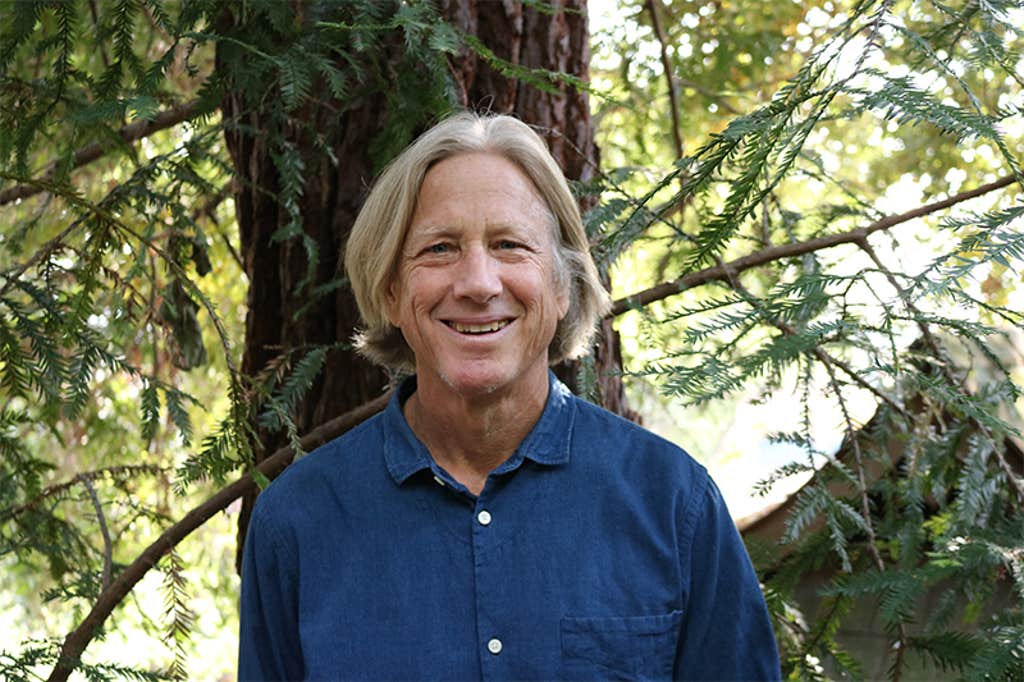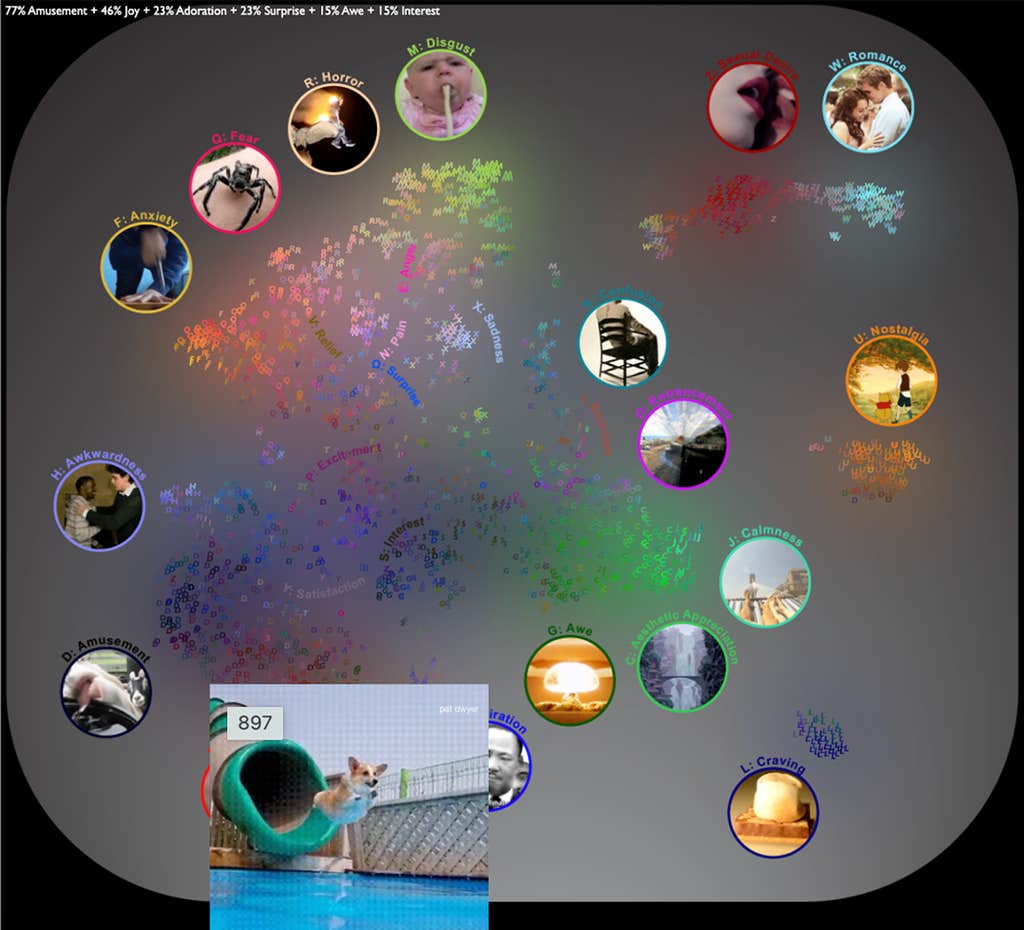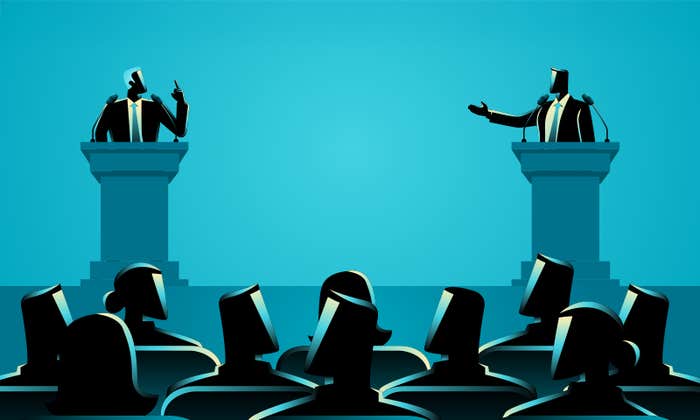I read a book last year that gave me the strangest feeling. I felt good about humanity. Human beings weren’t a natural disaster. We weren’t destined to kill everything on the planet, including ourselves. The awe we experience at music concerts, or under a carpet of stars in the mountains, could recalibrate the moral compass of the world. Awe leads “to goodwill, cooperation, and a transformed sense of self as part of a community,” wrote the author Dacher Keltner, a professor of psychology at the University of California, Berkeley.
The book is called Awe: The New Science of Everyday Wonder and How It Can Transform Your Life. Although my image of hell is a library of self-help books, I was won over by Awe. The science and research are sound, the writing is fluid and engaging, and the examples of people whose lives have been transformed by awe are convincing. Stacy Bare, a traumatized Iraq war veteran, overcomes the suicidal voices in his head by taking up rock climbing, skiing, and rafting. His experiences of “wild awe” inspire him to dedicate his life to help other veterans shed their troubled minds in the outdoors.
As the days wore on after I read Awe, and bad news continued to unreel around the world, the glow of the book began to fade. Keltner’s definition of awe—“the emotion we experience when we encounter vast mysteries that we don’t understand”—felt sentimental to me. The emotion of awe, bonding people into communities, was the root of polarization—my tribe is better than your tribe, my awe tells me so. The book had some holes in it.
When Awe came out in paperback this month, I emailed Keltner and asked if he was game for hearing out my misgivings. He was. In a video chat from his home in Berkeley, Keltner was affable as can be, his every word the expression of the diligent scientist. We talked a little about his personal life. He came of age in Hippie, California, which is not a place, of course, but a way of being. His father was a painter and his mother taught poetry and literature. In the 1960s, Keltner and family lived in Laurel Canyon, land of “Our house is a very, very, very fine house, with two cats in the yard.”

You write, “History so often follows the ebbs and flows of awe.” I know you mean that in a positive way, but I have to say, I see it as the problem. The sense of awe and its concomitant loss of self is exactly what leads people to fall under the spell of awful people, leading to awful outcomes. What do you think?
I think you’re right. Feelings of awe were at work in horrible things like the Manson murders or the Rwanda genocide, where people were chopping off heads with machetes. Our research has found that awe reduces polarization. Our default experience is to sense a common humanity with others, to empathize. I thought the experience of awe would decrease the boundaries between in-groups and out-groups, not do the opposite.
When have you experienced the dark side of awe?
When I read that Philip Gourevitch book about Rwanda, it gave me a shudder and even goosebumps about the horrors that people can perpetuate.1 Today, we talk about moral panics and moral contagions, where a collective of people is captivated by a big idea, and they lose their sense of self, harm, and morality. And when I read the book, I was like, “Man, there’s a lot of chanting going on, and dancing, and collective movement with machetes.” It was driven by this whole systemic idea of how the Tutsis were undermining Rwandan society. I thought, this is just like what I do. I go to a dance group where we have a shared experience, we dance, we move together, we feel like we can conquer a big problem like the climate crisis.
Awe “quiets the nagging, self-critical, overbearing, status-conscious voice of our self or ego,” you write. But that abandonment of self is what makes people vulnerable to demagogues. For some reason, I’m thinking of that overwrought movie version of Pink Floyd’s The Wall, which makes a connection between a rock concert and a Hitler rally. But in terms of awe, maybe that link makes sense. The emotion at the concert and rally is the same. Might that undermine your thesis about the social benefits of awe?
No, it doesn’t. A lot of religious and spiritual practices, forms of awe, reduce the likelihood of depression, they benefit life-expectancy, and they make people happier. But I know what you’re saying. Those experiences may be involved in religions that are racist, oppressive, and sexist. The compassion we feel in religious experience has justified slavery. “I love my people, I love all children of God. Just as long as they’re not people of color, not indigenous people.” And so, you have a case where awe leads to a collective commitment that’s bad for sectors of society but benefits the individual. There’s always that tension in society. Every social tendency that can lift up the greater good has the same power to wipe out huge sectors of society. And so, we always have to be critical. We need your critique.
Feelings of awe were at work in the Rwanda genocide.
Have you researched the power of charisma?
You know, I haven’t. There’s a new movement in political thinking that says political social movements happen because of singularly charismatic people who make you feel goosebumps. We haven’t gotten to that in my field of psychology. But I think most people would say, yes, that happens. When Nelson Mandela came out of prison, I was at an event with 50,000 people weeping and we’re like, “I’ll do anything!” So, yeah, this power is real.
And dangerous.
Yeah, I hear you. We’re a susceptible species.
You write, “The awe felt in encountering humanity’s better angels can counter toxic tribal tendencies.” How so?
On balance, the evidence we’ve gathered is awe reduces polarization and increases charity. Moments of awe make you include different people in your sense of tribe. So that suggests awe counters “othering.” But if you’re talking about white supremacists beating up immigrants, you get into another level of analysis. Can awe counter it? I think so. But it’s one of the big questions that was left by the book. You’re one of the first to get at this question hard.
But as fine-grained emotion scientists, let’s get precise in what we’re documenting. I get a lot of questions about Trump supporters. And when I look at Trump rallies, I don’t see awe, I see rage. Yes, you feel rage collectively. It’s awesome to be with 18,000 enraged supporters. But is awe really a proximal determinant of rage or genocidal tendencies? All emotions can be shared collectively. We can share humor and love and compassion, and we can share rage. So that’s the critical test. I can use scientific measures to ask whether these emotions are shared experiences of awe. Or are they really about shared pride and rage? It’s an empirical question that deserves research.

Experiences of awe seem fleeting. The other emotions in our daily lives seem to drive awe away. Would you agree?
Well, all emotions are fleeting. They lead to shifts in your neurophysiology for 30 minutes at most. And parts of the emotion or conscious elements of it are very fast. So, yeah, they are fleeting and ephemeral.
But awe is interesting because it really changes how you think about the world. You think, “I’m part of something larger than myself.” We’ve documented benefits of awe that last for a week. You go river-rafting for half a day and your mind is blown. And a week later, you feel less stress.
But you’re asking the hard questions, Kevin, and this is a big one: How much and for how long will awe shift you? The literature shows psychedelic experiences are transformative. But how do you feel a month later? I don’t think we want a human psyche or nervous system that is so shifted by these momentary emotions. We prefer homeostasis, we like to return to baselines. Awe can get you into trouble. “Yeah, I’ll just stop working and paying the bills, and I don’t need to eat.” But the literature around happiness and gratitude suggests the effects of awe may last longer than other momentary emotions.
Awe reduces polarization, as you say. How do you think that happens? Do experiences of awe get us to let down our ideological guards?
First, here’s what I like about awe. It points toward what is meaningful to you—the significant moral themes that matter to you. Do you care about social justice? Beauty? Pleasure? Do you care about harm? Community? Awe makes you more aware of the big narrative or ideology, the political ideal, that you want to be a part of. And every individual is different. We all resonate with different moral political themes. And awe shines a light on that. A healthy society should allow for multiple ideologies.
Isn’t awe just an emotion for the privileged?
What’s more, we’ve learned that awe increases your perspective. It makes you less polarizing, more rigorous in your thoughts. So, let’s hope the reliable experiences of awe don’t make you vulnerable to the kind of simplistic forms of reasoning that are part of an ideology. Let’s hope it makes you pluralistic, makes you recognize there are multiple views, including ideological views. So, that’s the first part. We don’t know the second part, whether awe can make you become less ideologically fixed in what you care about.
You define awe as occurring “when we encounter vast mysteries that we don’t understand.” But that sounds incomplete. What I think is more awesome is getting to know how the mystery works. The more I know about a piece of music, the more I enjoy it. Do you know what I mean?
I do, and you’re hitting the deep theme of the book: Awe is fundamentally about mystery. It cues the human mind to construct meaning, make processes, to understand mystery. Why do I die? Let me construct a theory about that. Why are there so many biological forms in the world? Let me arrive at a theory of evolution. Both Newton and Descartes asked, “Why are there rainbows?” So, they construct color theory and math and physics to figure it out. It’s just who we are. Mystery is the engine of creativity.
Is awe universal? I ask because, as you know, there’s a relatively new science of emotions that says emotions aren’t hardwired reactions. Rather, emotions are concepts constructed by our brains, and so emotions like awe can vary from individual to individual, culture to culture.
We published a paper in Nature that the expression of awe is about 75 percent universal.2 When people from around the world see fireworks or shooting stars, their “Whoa!” speaks to a universality in their facial and vocal responses, and in getting goosebumps. So, there’s a deep mammalian, universal structure to awe.
But don’t individual cultures shape our perspectives and emotions?
They do. But—you’ve touched a nerve—you have to consider individual differences within a culture. If you look at individual differences statistically, they beat cultural influences time and time again. Our natural selections form variations. We are more similar across cultures than we are across individuals. You can find Chinese individuals like me temperamentally; we’re going to have similar emotional lives. That’s predicted by evolutionary thinking. And you can’t account for that from constructivist views.
What’s really interesting is how culture constructs things out of emotions.3 Culture elaborates on emotions, adds details, adds objects of consciousness. You go to China and hear traditional music and it’s different from music in other cultures. We dance in one way in the west and other people dance in another way. I feel awe about the story of the Buddha. And somebody in a Pentecostal church is thinking about Jesus. So, yes, there’s differences in cultures, but in all the stories we’ve gathered, from 26 countries of every persuasion, there’s universality. And by the way, I don’t know why people fear universality.
Maybe because it undermines our individuality and unique cultures.
I don’t know. I think it echoes social Darwinism—My group’s better than yours. But in fact, universality is the antithesis of social Darwinism.
Why do you think the emotion of awe evolved?
I put it down to the realm of self-transcendent states, which get us beyond self-interest. It’s fundamental to human survival to be part of a community, to do things collectively, to alloparent, to share food. You need a whole suite of processes to orientate to other people’s interests and welfare. Awe does that, it makes you more collaborative and cooperative; you feel like you’re part of a social network. It also has effects on cognition that get you to shift out of an analytical mode and to see the systems around you. It’s like, “Oh, I get it, I’m not just me, I’m part of this community.” Awe is vital.
It’s just who we are. Mystery is the engine of creativity.
You write that “awe promotes the reverential treatment of nature.” Sometimes when I’m on a hiking trail, I’m not so sure.
I think there are many risks and perils associated with the pursuit of awe. We travel remote parts of nature, swim near reefs, and all in the search of awe, blind to what this pursuit is doing to the cultures and ecosystems we travel to, not to mention the carbon emissions of flying there. I think a prime example of this is the “psychedelic tourism” right now, where Western Europeans are in search of personal enlightenment traveling to Mexico or the Amazon, often at great expense to the cultures they visit, and their ecosystems. Any emotion can lead us to trouble, and this is one of awe’s great perils, that in its commodification or self-serving expression, the pursuit of it can undermine its very point, which is to lead us to benefit those around us and the ecosystems we are part of.
You tell us it’s a myth that awe is reserved for those who can afford to indulge in it. In fact, you write, “Wealth undermines everyday awe and our capacity to see the moral beauty in others, the wonder of nature, or the sublime in music and art.” How does wealth undermine awe?
Oh, man. When I first started studying awe, everybody was like, “Isn’t this just an emotion for the privileged?” But the opposite is true. Wealth comes with a sense of transactionalism, which is counter to the expansiveness of awe. Wealth tends to amplify your sense of self-interest: The wealthier I get, the more individualistic I become, the more I am aware of my own desires and interests. That’s a countervailing force to awe. Because wealth makes you more solitary, more inclined to spend time on your own, you’re less likely to share feelings of awe. Here’s yet another reason why our culture is struggling, why economic inequality is such a problem.
What’s the best example you can cite to show awe is not reserved for the well-off?
The blues. I would argue the most important music in the United States is African-American music. And that music comes straight out of slavery. The blues and gospel music are a form of awe and awe-based expression and creativity. And we should take spirituality, too. Spirituality tends to track to lower socioeconomic conditions. The spiritual imagination tends to be activated by states of deprivation.
How so?
Trauma and illness and death destabilize our sense of safety, our sense of integrity, our sense that the world is predictable. Destabilizing our sense of who we are is horrifying. When I interviewed Stacy Bare about his years in combat in Iraq and Afghanistan, he said he was always oscillating in a mixture of horror and fear and terror and awe. But when we encounter trauma, or are in a state of physical deprivation, the mind gets to work. It says, “Let me, through the power of mystery and awe, arrive at a new understanding of the world. Let me make sense of this.” ![]()
Lead image: Creative Travel Projects / Shutterstock
Footnotes
1. Gourevitch, P. We Wish to Inform You That Tomorrow We Will Be Killed with Our Families Farrar, Straus and Giroux, New York, N.Y. (1998). Page 29: “There were many attackers, Samuel recalled, and they came from all sides—‘from the church, from behind, from the north and south. We heard shots and cries, and they chanted the slogan, Eliminate the Tutsis.’”
2. Cowen, A.S., et al. Sixteen facial expressions occur in similar contexts worldwide. Nature 589, 251-257 (2021).
3. Keltner, D. & Oatley, K. Social functions of emotions in life and imaginative culture. Evolutionary Studies in Imaginative Culture 6, 1-20 (2022).
































